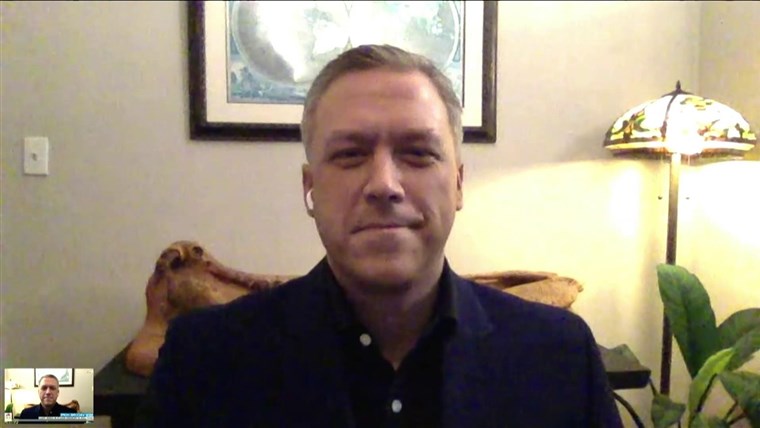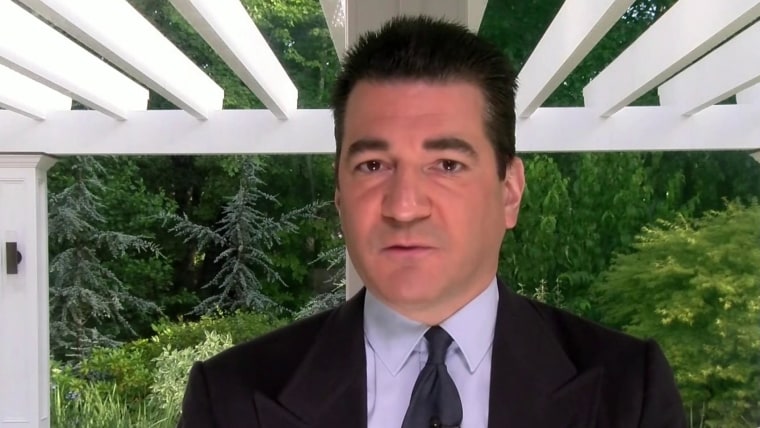In Chile, government officials have planned to grant “immunity passports.” In the United Kingdom, Health Secretary Matt Hancock proposed issuing “immunity bracelets.” And the idea of “immunity certificates” was also briefly discussed in the United States as a way to allow some people to return to work while states continued to tamp down on new coronavirus outbreaks.
These and other ideas for how to track people who have recovered from the coronavirus have been criticized by health officials for various reasons, but most importantly because they rely on one major assumption: that a person who has been infected by the coronavirus will be protected from getting sick a second time.
Big questions remain about any potential coronavirus immunity — particularly whether those who have been infected and have antibodies are protected from reinfection, and for how long. Some scientists worry that waning antibodies mean COVID-19 survivors won’t be immune if exposed to the disease again. But there has been some encouraging early evidence of possible protection against reinfection.
To understand the human body’s response to the virus, scientists are looking at antibodies and beyond to other elaborate biological responses, such as T cells and memory cells, that cause a person’s immune system to recognize a virus from a previous infection and eliminate the pathogen before it infiltrates cells.
Understanding just how these biological mechanisms respond to the coronavirus is key to identifying whether people who have been infected once can be protected from reinfection because their immune systems “remember” the virus.
July 2, 202002:23
“We know that, somehow, not all immune memory is created equal,” said Shane Crotty, a virologist and vaccine scientist at the La Jolla Institute for Immunology in California. “While some memories can be decades long and are stable, for other things, it seems like the memory lasts for only a few years. It can be hard to predict, which is one reason there’s definitely uncertainty with this for COVID-19.”
The human body has two main lines of defense against viral invaders: the innate immune system and the adaptive immune system.
An innate immune response is a more general defense mechanism that kicks in early when a viral intruder is detected. This built-in alarm system can trigger a host cell to release a protein that tries to interfere with the virus’ replication or can involve the immune system trying to shut down the compromised cells.
An adaptive immune response, on the other hand, is a much more specific line of defense, and is thus much more complex. It’s also not an immediate response, because the system has to first recognize the foreign invader before mounting a specialized attack.
Antibodies are part of the adaptive immune system. They are made by so-called B cells once a virus or other pathogen has been recognized. Antibodies can bind to viruses and block them from getting into cells, but there are limits.
“We really don’t know to what extent developing antibodies will offer protection against reinfection down the road,” said Dr. Daniel Kuritzkes, chief of the infectious diseases division at Brigham and Women’s Hospital in Boston. “Being antibody positive shouldn’t be taken as any clear sign of immunity or protection.”
So far, there has not been clear evidence that people have been reinfected with the coronavirus, but Kuritzkes said this has been hard to monitor because some patients continue to test positive for the virus long after they’ve recovered.
Studies have shown that coronavirus patients do produce antibodies, which are protective proteins the immune system produces in response to infections. But it’s not yet known whether antibodies confer any kind of long-term immunity to COVID-19, the disease caused by the coronavirus.
A recent study published June 18 in the journal Nature Medicine that examined 37 patients who were asymptomatic and 37 individuals who had symptoms found that both groups developed coronavirus antibodies, but they were relatively short-lived. This was especially true among the asymptomatic patients in the study.
Within two to three months, 40 percent of the asymptomatic individuals had antibody levels that dropped below the threshold to test positive on antibody tests, compared to 12.9 percent of those who had symptoms.
The findings suggest that coronavirus antibodies may diminish quickly, but Kuritzkes said it’s possible that low antibody levels could still offer some protection.
“Even if antibody levels in the blood are declining, that doesn’t necessarily mean that people are losing immunity,” he said.
Yet, if antibodies do fade quickly, Kuritzkes said, it’s possible that people could become reinfected, though it’s still too early in the pandemic to know, and there’s not enough data available yet.
But it’s also possible that there are other factors beyond antibodies that could play a role in protective immunity.
“Antibodies are great, but they stop viruses outside cells — they don’t get inside,” Crotty said. “Once a cell has been infected, you don’t want that cell to then grow more virus.”
For that, the adaptive immune system has other tools in its arsenal, and these “cellular immune responses” could play an important role in protecting against reinfection.
Two types of T cells, in particular, are designed to recognize and attack pathogens. The first, known as T helper cells, are crucial for regulating antibody responses. The other, known as cytotoxic T cells, or T killer cells, are sophisticated killers.
“A cytotoxic T cell can specifically recognize the virus and latch on and kill it,” said Sheena Cruickshank, an immunologist at the University of Manchester in the U.K. “It’s probably the cytotoxic T cells, in the context of the coronavirus, that might be the most important cells at dealing with the infection.”
Patients who have been infected with a virus also produce what’s known as memory cells, which can recall certain pathogens and jump-start any necessary immune responses, according to her.
“Memory cells remember that they’ve seen the virus and because they had all that information that took so long to program,” she said, “if they encounter the virus again, they’re able to almost immediately deploy the right weapons or antibodies.”
In other words, even if a patient’s antibody levels wane over time, the adaptive immune system has ways to pick up the slack.
And in previous studies of other infectious diseases, researchers have shown that immune memory can last a long time.
“We actually studied this for the smallpox vaccine, which was a fun example because smallpox was eradicated,” Crotty said. “We wanted to see if we took blood cells from people who got immunized 50 years go, if there are still cells circulating in your blood that can see that virus. And they did.”
July 2, 202007:55
Similar studies have been done with survivors of the 1918 flu pandemic, and Crotty said scientists were able to show that the patients’ immune memories could recognize that particular influenza virus.
But immune memory varies from virus to virus, Crotty said, and it’s not well understood why these differences exist. It’s not clear, for instance, why the immune system can recognize some viruses many decades later, while for others, the memory response is weak or unstable. It’s also not known yet where memory responses to the coronavirus will fall on that spectrum.
Scientists are actively researching all aspects of potential coronavirus immunity, but there have been some encouraging early results. In a study published in May in the journal Cell, Crotty and his colleagues studied cells from 10 patients who had recovered from mild cases of COVID-19.
The scientists exposed these individuals’ immune cells to pieces of the virus and found that all of the patients had T helper cells that could detect the coronavirus’ signature spike protein and 70 percent of the patients had cytotoxic T cells that could sense and extinguish infected cells.
“We found that the T cell response doesn’t appear to be short-lived, and it was a good, robust response that looks similar to responses to other viruses,” said Alessandro Sette, an immunologist at the La Jolla Institute for Immunology in California who worked with Crotty on the research.
Though it was a small study, Sette said the findings offer a good baseline for vaccine research, because ideally a coronavirus vaccine would try to induce similar immune responses.
More research is needed, but Cruickshank said research on adaptive immune responses is shedding light on the human body’s intricate workings, and how these complex biological systems can fight off viral interlopers like the coronavirus.
“It’s a really tightly programmed and beautiful system,” she said. “We just need to make sure that it’s switched on at the right time, and then after it’s done its job, it gets switched off.”




















